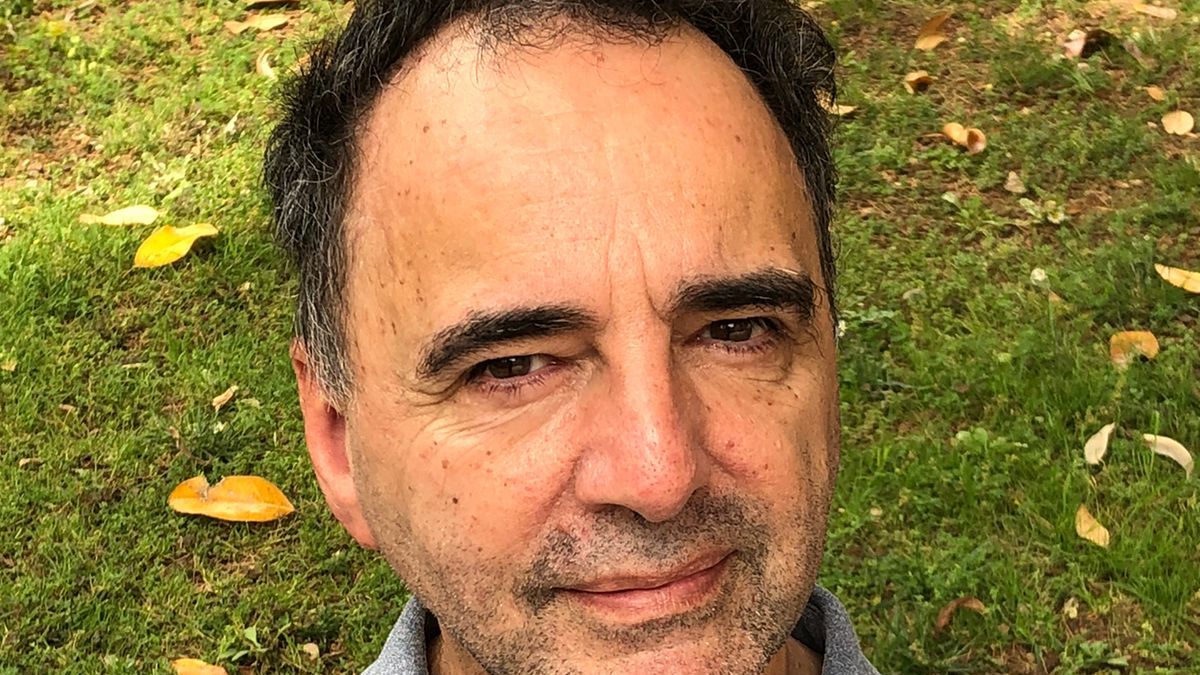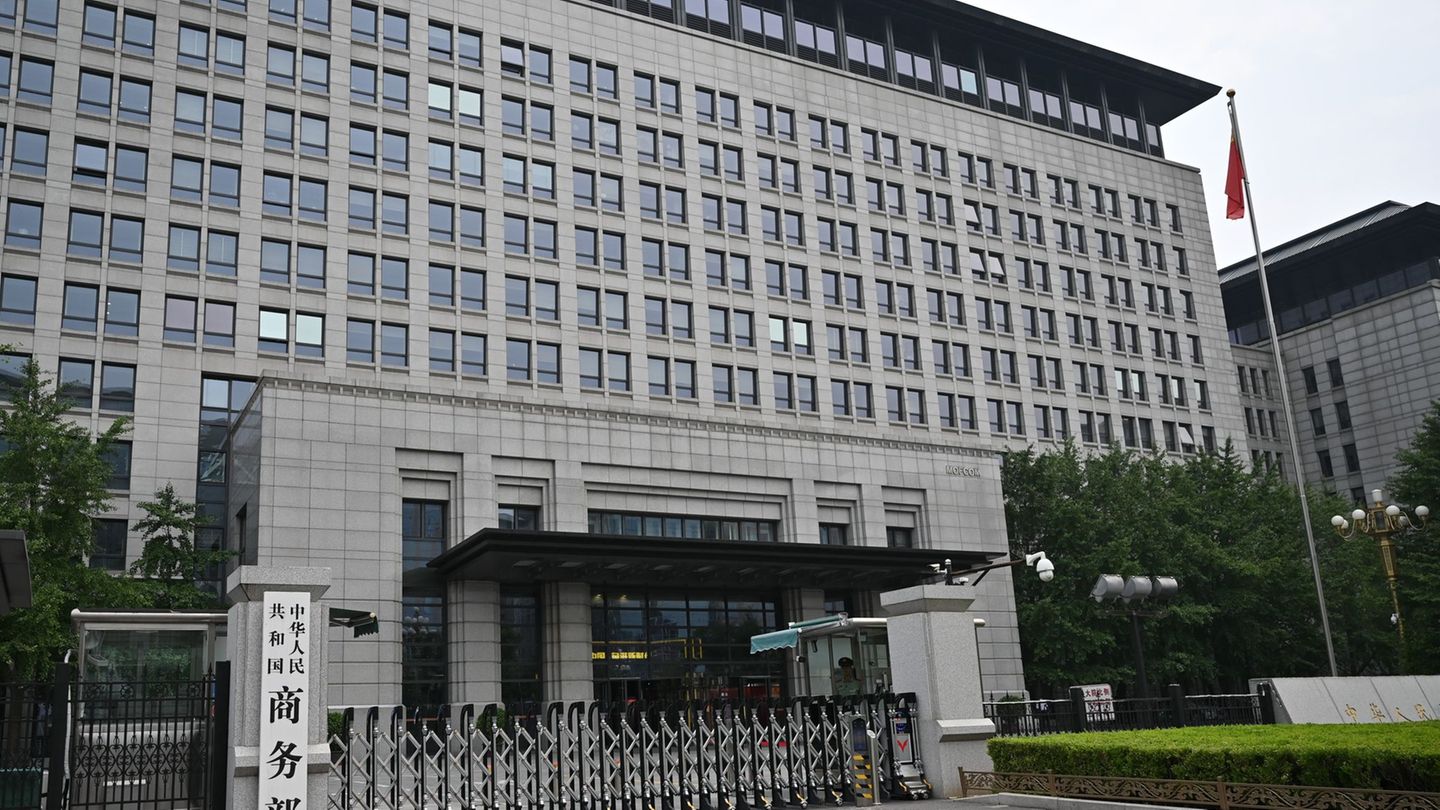A strange crime in a town in Patagonia and two police officers who compete to solve it is the starting point of “The Ride of the Valkyries” (Seix Barral) where Pablo De Santis returns to the enigma novel. De Santis, a member of the Argentine Academy of Letters, has published more than thirty novels and stories for adults, adolescents and children that earned him awards. We dialogue with him.
Pablo de Santis: I was there before and after the eruption of the Chilean volcano that covered areas of Patagonia with ash. I spent a couple of winters in Villa La Angostura. I was impressed by how the ashes had paralyzed the activity of places that make a living from tourism. There were no flights for entire months. That caused isolation, and detective novels play a lot with confinement; Furthermore, the word ashes leads to a relationship with death.
P. de S.: The intrigues were multiplying. A secret story that surrounds the town, which is resolved in the end. There is the identity of the person who committed the crime. There are the possible authors. There is, among several other things, the reason for the crime.
Q: Added to that is the competence of two commissioners.
P.S.: Commissioner Conrado Nebra, who is the narrator, is sent from the capital not so much to investigate the case but rather so that Valeri, the local deputy commissioner, does not solve it and be evaluated again, when he is about to be fired from the force for a reason. that he has justice and it is about to fall on his head.
Q: Did you try to show the differences between a desk police officer and an action police officer?
P.S.: The police officer who arrives, who is also a lawyer, is weighed down by the opinion of his father, a retired police commissioner who became a legend for having killed the leader of a gang of robbers, who questions him for being “soft” and praises Valeri for his reputation as a tough cop. Conrado feels that he has gone to compete with a kind of favorite brother of his.
Q.: Your novel could be called “The Poppy Murders” or “The White Forest Murders”. Why did you choose the Wagnerian “The Ride of the Valkyries”?
P. de S.: They are titles that I had in study. When that moment of “The Valkyrie” appeared towards the end of the novel that anyone involved with crimes listens to, to boost themselves, I made up my mind.
Q: How is this police officer different from the previous ones?
P. de S.: It’s more realistic. In the others, for example, it showed a world association of detectives who discussed the enigma like philosophers. They were books very far from reality. Although this takes place in an imaginary town or the main police officer comes from a capital that is not known exactly what it is, and it could perfectly well be, let’s suppose, from Neuquén. There is no fantasy element like in “Belladonna Academy” where there is an academy of rather romantic assassins. In this case I wanted Conrado to be a person very attached to materiality, to the details of things.
Q.: Did this novel emerge completely from the start or did it take you a long time?
P.S.: I always have things in the middle, started, that I think about. I had this enigma novel for years. I rewrote it a couple of times changing the point of view. In one version he was an omniscient narrator and Conrado Nebra was one of the characters, in the last version I focused on him.
Q.: What do you think of the current growth of police and horror literature in Argentina?
P- de S.: Police and horror are literary genres that have always been very close to Argentine taste. We have Borges with the police and the fantastic, Bioy with the police, the fantastic and science fiction, Silvina Ocampo with the fantastic and the police, Marco Denevi, to start a long list. It is a rich tradition. It’s not strange to me to write detective stories among other genres. Traditions always weigh on one, especially national traditions.
Q.: You usually rescue forgotten authors like the one who wrote a series of stories like Chesterton’s Father Brown…
P.S.: Those of the priest Leonardo Castellani. I love his stories “The Deaths of Father Metri”. Castellani was a polygraphist, he wrote books on religion, politics, poetry, philosophy, very virulent, and very funny essays. The Spanish novelist Juan Manuel de Prada wrote a lot about Castellani and managed to get it published in Spain, where until then he was totally unknown.
Q: How do you see the current situation of books in Argentina?
P.S.: One is always afraid of everything that surrounds the universe of books. We never really know if what is happening is just due to current problems in our country or if they are more general cultural issues, those for which there seems to be no remedy, such as the progressive distancing from reading. One always hopes that these are only temporary issues. I went to the Book Fair on its last day and went through various activities almost all day there. In previous years, because it was the last day, the one before closing, there was such a crowd that you couldn’t walk through the Fair. That last Sunday there weren’t that many people, I hope it’s something temporary.
Q: What are you working on now?
P. de S.: In “Inspiration,” a book of detective stories for boys set in ancient China, the impulse to gather these stories arose from “Who Wants to Be a Detective?”, a novel for boys, where everything happens in Alfa City, an imaginary city. where streets and monuments are named after writers and police characters, it was recently published in Italy and won the prize at a Children’s Literature Festival.
Source: Ambito
I am an author and journalist who has worked in the entertainment industry for over a decade. I currently work as a news editor at a major news website, and my focus is on covering the latest trends in entertainment. I also write occasional pieces for other outlets, and have authored two books about the entertainment industry.




